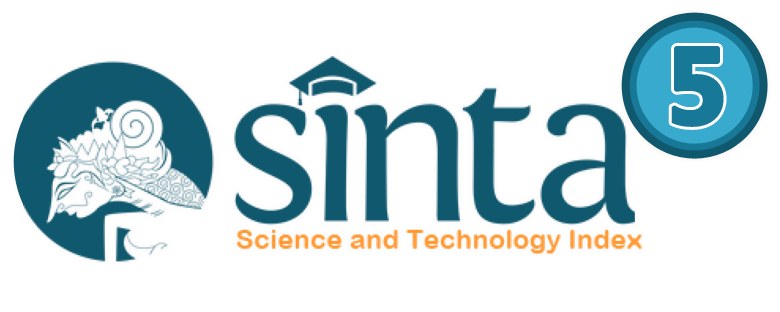REALIZING FOOD SECURITY AND POVERTY ALLEVIATION THROUGH RURAL COMMUNITY EMPOWERMENT IN RINGINKEMBAR VILLAGE MALANG REGENCY
Abstract
ABSTRACT
Two-thirds of Ringinkembar Village’s total population is poor people, so to meet their daily food needs are extremely difficult and limited. To solve it, one of government’s strategies is implementing Food Independent Village Program. This program focuses on the effort to empower community in order to achieve food security and alleviate poverty. The research method used was descriptive method with qualitative approach. The selection of key informants is done by purposive sampling and data was analyzed using interactive data analysis model by Miles and Huberman. The results showed that: before implementing these programs, the food security condition was proved very weak and vulnerable; after implementing these programs, the condition of food security in this village more strengthen and can develop other productive business. It can realize through the entire process of rural community empowerment that was done through four stages and successfully run by the poor household.
Keywords: Food Security, Poverty Alleviation, Rural Community Empowerment
Full Text:
PDFReferences
Chambers, R. (1995). Poverty and Livelihoods: Whose Reality Counts?. Environment and Urbanization. 7:173-204.
Food Security Council of Indonesia. (2009). Draft 1: Indonesia Tahan Pangan dan Gizi 2015. Retrieved from: http://bkp.bangka.go.id/donlot/tahan-pangan-dan-gizi-2015_datastudi.pdf
Food Security Council of Indonesia, Ministry of Agriculture, and WFP. (2009). A Food Security and Vulnerability Atlas of Indonesia 2009. Jakarta: PT. Enka Deli.
Food Security and Implementing Counseling Agency of Malang Regency. (2013). Food Independent Village Program Report 2012. Kepanjen: Food Security and Implementing Counseling Agency of Malang Regency.
Gill, G. (2002). Applications of Appropriate Agricultural Technology and Practices and Their Impact on Food Security and the Eradication of Poverty: Lessons Learned from selected Community Based Experiences. London: Overseas Development Institute.
Life Sciences Research Office. (1990). Core Indicators of Nutritional State for Difficult to Sample Populations. The Journal of Nutrition, 120: 1557-1600.
Lord, J., & Hutchison, P. (1993). The Process of Empowerment: Implication for Theory and Practice. Canadian Journal of Community Mental Health, 12:5-22.
Maxwell, S., & Slater, R. (2003). Food Policy Old and New. Development Policy Review, 21(5–6):531–553.
Parpart, J., Rai, S., & Staudt, K. (2002). Rethinking Em(power)ment, Gender and Development: An Introduction. Rethinking Empowerment. London: Routledge.
Nord, M., Andrews, M., & Carlson, S. (2007). Household Food Security in the United States, 2006. EER-49, U.S. Dept. of Agriculture, Econ. Res. Serv. November 2007.
Pranaka, A.M.W., & Prijono, O. S. (1996). Pemberdayaan: Konsep, Kebijakan dan Implementasi. Jakarta: CSIS.
Prato, B., & Longo, R. (2012). Empowerment of Poor Rural People through Initiatives in Agriculture and Natural Resources Management. Rome: IFAD (International Fund for Agricultural Development).
Ringinkembar Village Administration. (2009). Official Document of Ringinkembar Village 2009. Retrived from collecting data in the field during study.
Central Board of Malang Regency Statistics. (2010). Malang Regency in Figures 2009. Malang: Planning Board of Malang Regency.
Tadjbakhsh, S. (2008). Human Security: Looking Back before Looking Forward. In A Paper for ICHSWA Conference. Retrieved from http://www.birjand.ac.ir/ichswa/downloads/Dr%20Tajbakhsh's%20Paper%20in%20ICHSWA.pdf
UNDP. (1995). Human Development Report 1995. New York: Oxford University Press.
USDA. (2012). Food Security in the U.S. Retrieved from http://www.ers.US$ a.gov/topics/food-nutrition-assistance/food-security-in-the-us/measurement.aspx#.UbqhkOf0HZI
Webb, P., Coates, J., Frongillo, E.A., Rogers, B., Swindale, A., & Bilinsky, P. (2006). Measuring Household Food Insecurity: Why It’s so Important and yet so Difficult to do. The Journal of Nutrition, 136(5):1404S–1408S.
World Bank. (2002). Empowerment and Poverty Reduction: A Sourcebook. Washington, D.C.: World Bank.
DOI: https://doi.org/10.52447/ijpa.v2i2.513
Refbacks
- There are currently no refbacks.








